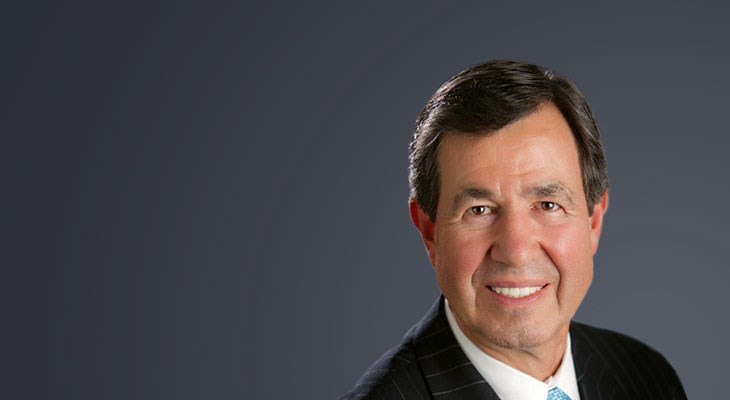Dealmaking fits Charles Huebner like a glove. He’s been doing deals for more than 40 years since he first joined Goldman Sachs to work in the investment bank’s Detroit office.
“I had a client who just passed away, a very wealthy real estate developer,” Huebner recalls. “I started doing business with him in 1975. That’s the ultimate compliment of dealmaking skill. He was way too smart to hang around somebody that long who didn’t bring value.”
Huebner has also worked at Kidder, Peabody & Co., Paine Webber and UBS. At each firm, he was an institutional research, trading and sales specialist providing both equity and fixed income investing services to institutional investors, ultra-high-net-worth individuals, corporations and hedge funds.
A decade ago, he soured on working in the brokerage space and decided to shift gears and start his own firm, Pointe Capital Management LLC.
We caught up with Huebner to learn about the forces that drove the launch of Pointe Capital and the value of being a dealmaking sleuth.
The fundamentals of investing
There are two sides to the investment banking industry: Clients who need money and clients who have money. The vast majority of my time was spent with clients who have money and need to invest it in the liquid capital markets. The challenge is always to have a solid, well-thought-out understanding of risk, diversification, liquidity, expectations, leverage and discipline. Whether it is an institution or an individual, I have always tried to be much more than a broker looking for a trade. That led to being deeply involved in strategy as well as idea generation and execution.
Fast forward to 2009. Our world became so ugly working for a brokerage company that I was either going to retire or do something different. Brokers were being reduced to raising money and little else. All investment decisions were being handed down from HQ and controlled by attorneys as a way of reducing risk to the firm. I have never subscribed to the “canned” approach to investing or “one size fits all.” So I gave up my Series 7, became a fiduciary and started my own firm.
A dealmaking sleuth
There was a philanthropist who had a very large position in a single stock. This was a relatively illiquid situation. There is a real art form in being able to get things done in the public market without drawing too much attention to what it is you ultimately have to do. If I’m trying to sell 4 million shares of stock and somebody figures out there is a 4 million-share seller out there, you know what’s going to happen to the price of the stock. It’s going down.
You have to be a little bit of a sleuthy sort of guy. Maybe you go in on any given day and your goal is to be 10 percent of the volume that is traded that day. So if he has four million shares of stock and we’ll say the stock trades 200,000 shares a day, you’re going to be trying to trade 20,000 shares of the stock and try to do it at the weighted average price of the day or better.
You take all the stock that is traded at different prices and you weight it. It’s called a VWAP – volume weighted average price. That number is known during the course of the day. I can look at any time and see what the VWAP is. If it’s 10:00 in the morning, the VWAP is not very helpful to me because there are six hours of trading left to go. But if I start to peeling off stock during the course of the day and at the end of the day, I’m doing four cents better than the VWAP and it’s 3:30 in the afternoon, I’m doing my job for the client. I’m getting better than average prices by four cents and I’m getting my 20,000 shares done each day.
This was going to take two months to sell the stock. We would report to him at the end of the week what the average VWAP was for the week and what the price was that he got for the shares that he sold. He was very patient with all of it. He just let us run with it and do what we knew how to do. In the final tally, he was incredibly appreciative. He was so appreciative of the job we had done because he knew if he didn’t deal with the right people, it was going to cost him a bunch of money. With 4 million shares of stock, if he loses 25 cents a share, that’s $1 million he would lose.He did exactly the smartest thing he could have done. He found people he thought were well-informed, people he could trust and said, ‘OK, you handle it.’
The Last Word
The challenge of keeping fundamental investors at the fore is people are so quick to pull the trigger these days. They want instant gratification. Today, we manage money for individuals a lot more than the institutional side of the business. I say to people, ‘Turn the damn television off.’ All it’s going to do is create enough insecurity in your mind that it’s going to cause you to do things you’re going to regret. If you have a reasonably priced security that’s generating enough cash flow to pay your debts, your dividends and grow the business, it doesn’t have to be a hostage to outside sources of capital and it has a good business model and an effective management team, that’s about as fundamental as you get.




